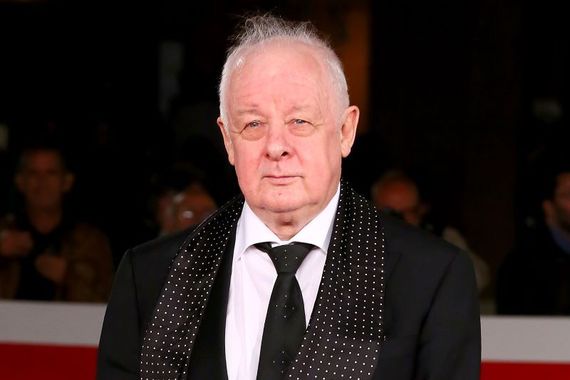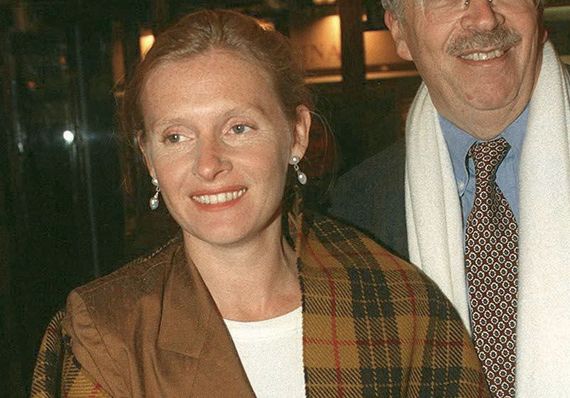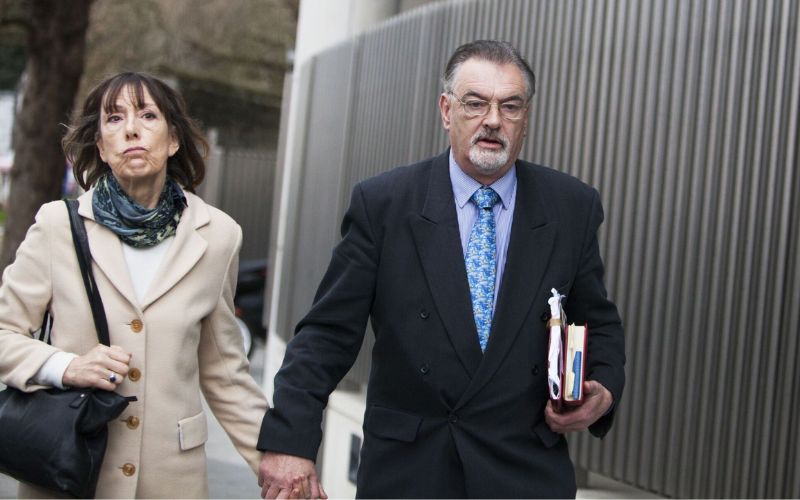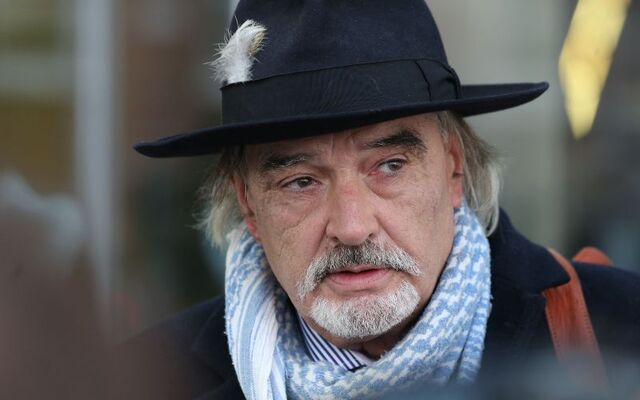Just minutes earlier, Kay made her bid to seal Ian’s rehabilitation, saying in her eulogy that her brother’s ‘deepest wish’ was to clear his name of any involvement in the murder of French film producer Sophie Toscan du Plantier.
Siblings don’t owe each other unconditional love, so Kay’s taking on the role of master of ceremonies at his memorial speaks volumes about her affection for her brother and her uncompromising belief in his innocence.
Around her gathered about 30 of Ian’s friends, supporters and some media people while the cameras rolled. ‘It’s always a good idea to record content when Ian Bailey is concerned.
You just never know if there’ll be another project, it might come in handy,’ explained a film crew member to a weekend newspaper. Ian's further potential, both as a cash cow and cause célèbre, perhaps explains why the memorial happened so publicly, rather than taking place quietly and under the radar as you might expect for such a notorious figure whose loved ones might be mortified by the association.
In attendance was Cork solicitor Frank Buttimer, who, thanks to his constant presence at Ian's side during his various civil legal actions and arrests over the decades, sprang from obscurity to become a household name.

Director Jim Sheridan.
Filmmaker Jim Sheridan – another champion of Ian's innocence who made the documentary series "Murder At The Cottage" and recently unveiled his new docudrama "Re-creation" at the Tribeca Film Festival – also made the trip to West Cork. The filmmaker was an hour late for the event, but Kay obligingly delayed it until his arrival.
And perhaps typically for anything to do with Ian, there was another hitch when Jules Thomas told the Irish Mail on Sunday her ex actually wanted to have his ashes scattered in Dunmanus Bay, not Roaringwater. ‘Poor bugger, he wasn’t even scattered where he wanted to be in the end,’ she said.
Read more
Ian often railed about the pots of money people made from his trials and tribulations while carping that he never earned a penny from it himself. Certainly, the savage murder of Sophie Tuscan du Plantier outside her remote cottage in Toormore in December 1996 and the limelight-hogging self-confessed chief suspect has spawned a mini-industry of crime books, podcasts and documentaries.
Ian, who survived on welfare and whatever he made flogging his poetry at farmers markets, may not have monetised his travails, but true to his narcissistic streak, he failed to acknowledge that neither did the women in his life. He was also too sexist to notice that while the men who surrounded him in a professional capacity benefited from the association, the women from his personal life lost out.

Sophie Toscan du Plantier.
Sophie Tuscan du Plantier lost her life aged 39. One interpretation of what occurred is that Ian, a freelance journalist, set about exploiting the internationally significant story that had broken on his doorstep. In the process, the overbearing hustler who seemed to know more about the crime than anyone else started to incriminate himself with his behaviour. Admitting he was the chief suspect, he said: ‘It looks to me as if they are not looking for anyone else.’
The verdict from the court of public opinion is that an intoxicated Ian called at Sophie’s place late at night and crushed her skull with a rock in a frenzied rage. The scratches on his face and hands, which he claimed were from killing turkeys and chopping down for trees in the run-up to Christmas, were inflicted by Sophie as she fought for her life.
Ian had no alibi for the night of the murder, and he changed his story repeatedly. Between these conflicting hypotheses, there is unanimity about one thing: that the investigation was botched from the beginning, in the words of the former DPP Eamonn Barnes, ‘thoroughly flawed’ and ‘prejudiced’.

Jules Thomas, his ex-partner and Ian Bailey.
Ian’s long-suffering ex-partner, Jules Thomas, provided him with a comfortable lifestyle for almost three decades: a home, an office for his scribblings and a family.
In return, she was beaten up on several occasions and hospitalised twice for her injuries. She became a social pariah because of her closeness to West Cork’s Public Enemy No.1 and a figure of pity. Her health was affected. She said that she would have thrown Ian out of her house earlier, only she felt sorry for him, for both his penury and the murder accusations he faced, which took such a toll on his health.
Read more
Women were fodder for Ian's sordid online adventures when he left lewd messages under racy photographs of young women, many of whom were clearly bot accounts. He had an opportunistic view of women. They were sex objects, they were carers or they were providers who could bankroll the bohemian existence he chose for himself.
Despite his reliance on Jules, his regret about being ‘seriously violent’ towards her, as he stated in court, never had the ring of truth. When Jules moved on, Ian’s sister Kay worried about his deteriorating health from a distance.
She wanted to go to Cork to look after him after his various surgeries, but he would always put her off for fear, she says, of her discovering that his drinking was out of control.
Perhaps he had other, more unsavoury secrets to keep from his devoted little sister. We may never know what made Ian Bailey tick or prove what role – if any – he played in Sophie’s death. But judging by the media presence at his farewell, it won’t be for lack of trying.
* This article was originally published on Evoke.ie.




Comments